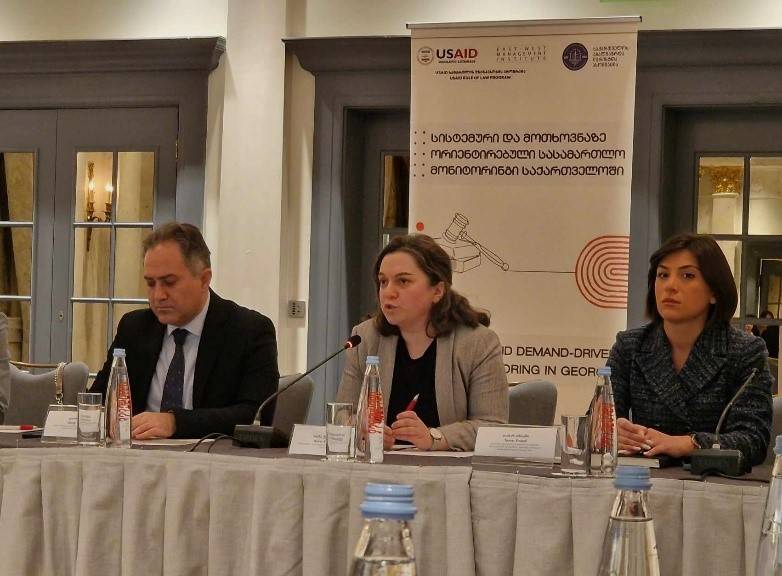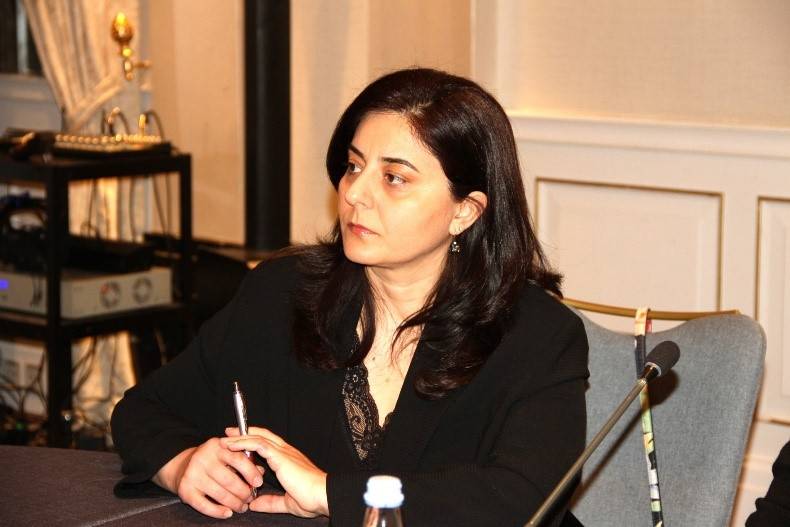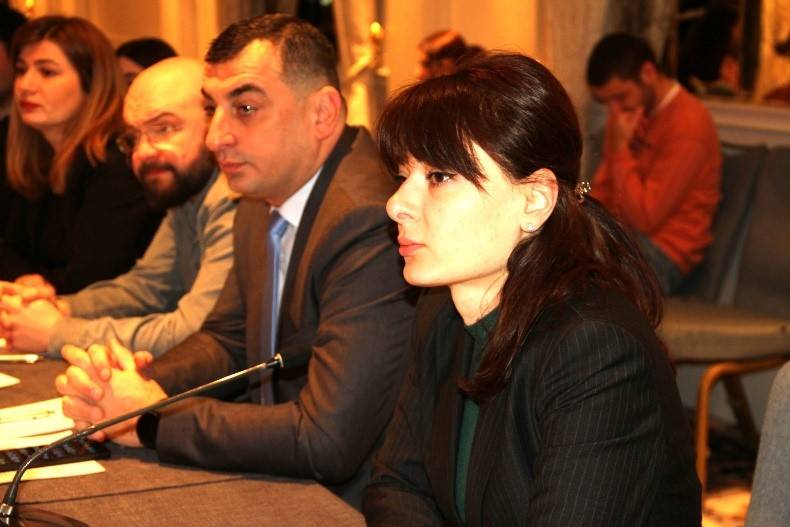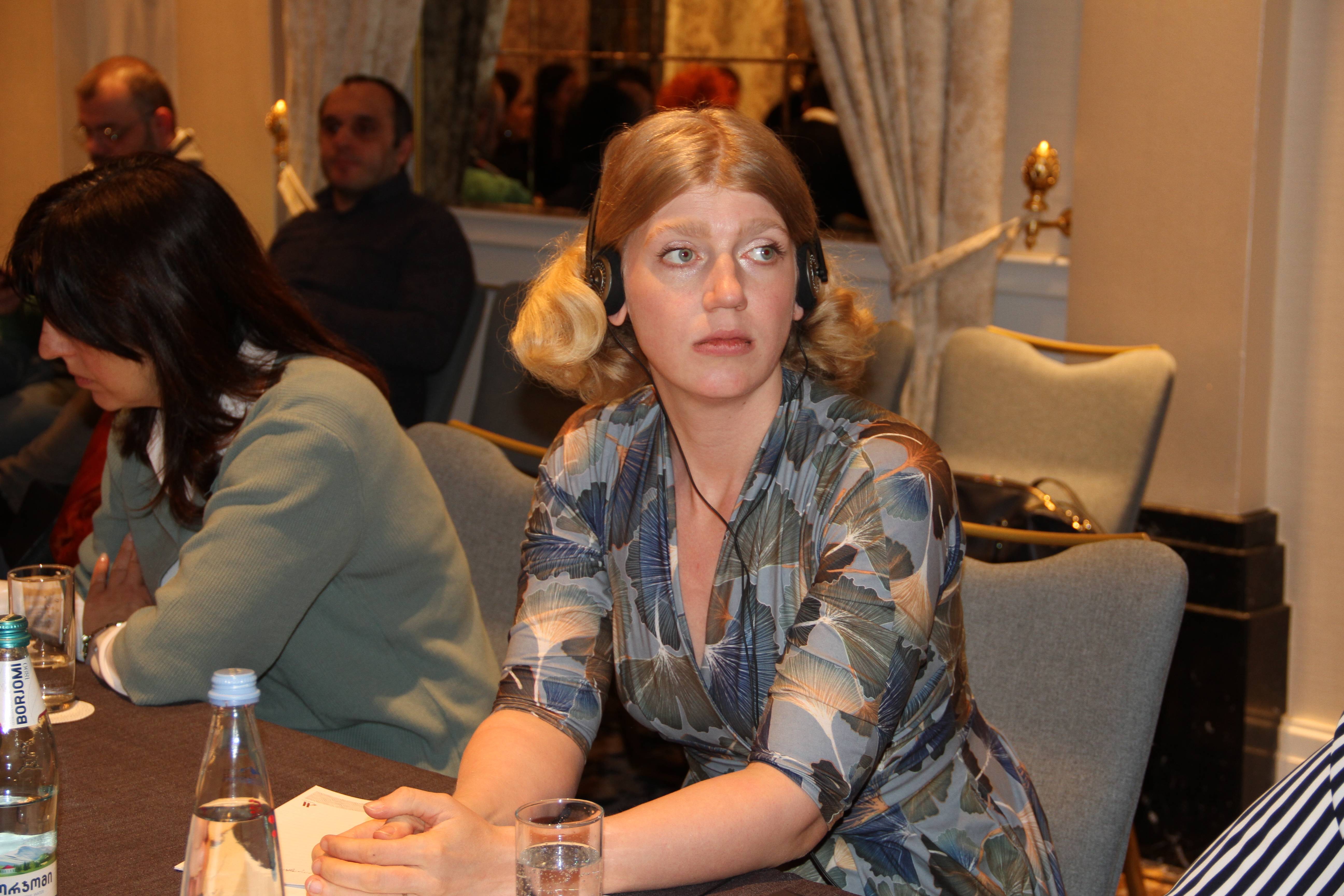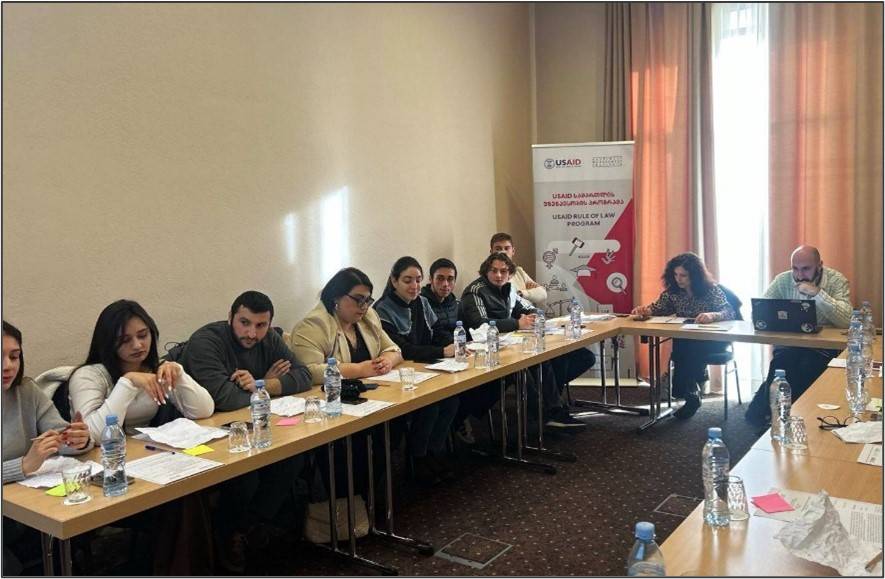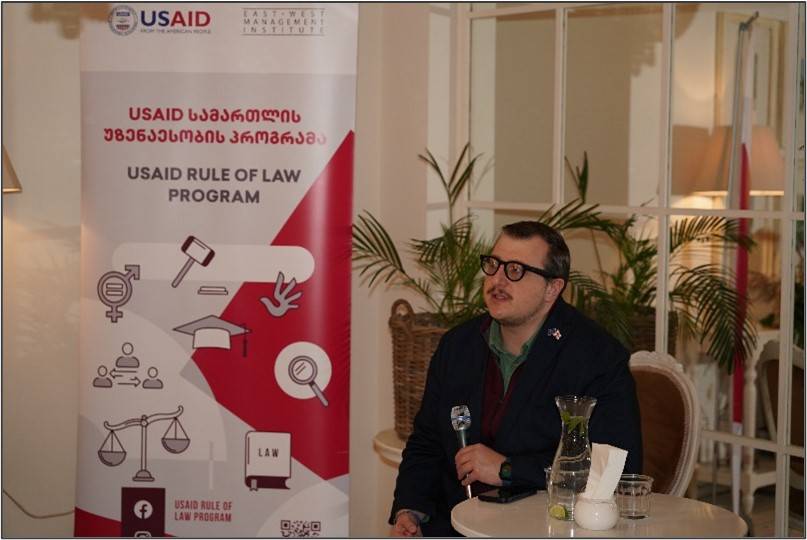Georgian Young Lawyers Present the 17th Court Monitoring Report
On January 31, 2024, the Georgian Young Lawyers Association (GYLA) presented its 17th Criminal Trial Monitoring Report developed with the support of the USAID Rule of Law Program (Program). The report covers the period of November 2022 to July 2023 in which GYLA monitors observed 844 court hearings at the Tbilisi, Kutaisi, and Batumi courts.
Nona Kurdovanidze, GYLA Chair, opened the event by explaining the purpose of the monitoring effort. She said, “The purpose of our multi-year monitoring is to contribute to the improvements in criminal justice in Georgia. We want to show to the public why well-functioning and independent courts matter.”
GYLA’s Tamar Bochorishvili then presented the report’s findings to about 40 representatives of the judiciary, the bar, the Prosecutor’s Office, and representatives of international missions and local human rights organizations.
GYLA’s monitoring revealed that court use of preventative measures continues to be problematic. The courts continue to apply only two types of measures – bail and detention. In 63% of the hearings GYLA observed, the court ordered bail, while in 36% of the hearings, it ordered detention. Especially troubling was that the court often applied these measures without substantiation. GYLA found that the court failed to substantiate its decision in 43% of the cases in which it imposed bail.
GYLA found that judicial control over plea agreements also remains problematic. Out of 217 plea agreements GYLA tracked, the court rejected only two. They also found that judges did not adequately inform defendants about their rights related to plea agreements, nor did they properly investigate the legality and fairness of the agreements. The monitors even observed cases where the accused had made an advance payment of the fine before stipulating to the plea agreement.
Domestic violence was a thematic focus of the monitoring project. Out of 247 court hearings GYLA observed,48 (19%) of them concerned domestic violence-related crimes. And despite the numbers showing domestic violence to be a serious societal problem, monitoring indicated that the courts are taking a more lenient approach to these types of cases than they have in the past. The use of imprisonment as a prevention measure in these cases decreased by 9% compared to last year, whereas the use of bail increased by 10%.
On the slightly optimistic side, monitoring showed that while case delay remains a problematic issue, there was a slight (3%) improvement in the number of postponed hearings compared to last year.
Following the presentation of the report, panelists representing the judiciary, the Prosecutor’s Office, and the Georgian Bar Association (GBA) discussed its main findings. Judge Madona Maisuradze from Rustavi City Court talked about the legislative limitations inhibiting judges from applying more diverse preventive measures. Khatia Kandiashvili, Head of Supervision at the Prosecutor General’s Office’s Strategic Development Department, discussed the legislative initiative currently being considered by Parliament to introduce a less severe preventive measure, restriction of movement. Finally, Kote Gelashvili, Chair of the GBA Ethics Commission, discussed the practices of the Commission aimed at preventing ethical violations by defense lawyers.
